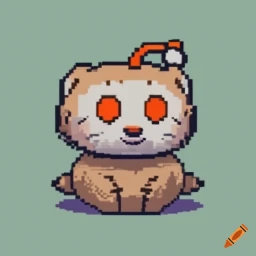The wallpaper is just a cropped image from the scans of the games manual found here, note these are spoilers!, Tunic is an absolutely lovely game I have been playing on my Switch and I highly recommend it to people who really enjoy the difficulty of older Nintendo games but want a more polished experience. The way the game integrates the “manual” is really intriguing
For a while I was experimenting with different plasma themes but I landed back on the good old reliable gruvbox dark theme.
Edit: my apologies for not perfectly aligning two of the images in Gimp, I forgot to press the button that aligns them horizontally and not just vertically :p


The plugin that brings the “starter” / “welcome” screen when
nvimis called without a file ismini.starter, a lua module of theminiplugin. My primary use case for neovim is closer to a feature complete text editor rather than a full fledged IDE, although there definitely is some overlap in my setup.My set of plugins are roughly as follows
vim-plug, I will likely replace this one withpackerat some pointgoyo.vimandlimelight.vimfor distraction free viewing and editingnnn.nvimto integrate thennnfile manager into neovimmini.nvimaccording to the Github, “Library of 35+ independent Lua modules improving overall Neovim (version 0.7 and higher) experience with minimal effort. They all share same configuration approaches and general design principles.”mini.surroundfeature rich surround actionsmini.statuslinea very simple no-frills statuslinemini.starteraformentioned start screenmini.pairsinserts the paired character, e.g typing(will automatically place)behind the cursorsmini.movemove selectionsmini.maphas a little map of the file similar to VScode among many other IDEs & text editorsbarbar.nvimTabbar pluginnvim-treesitterfor syntax highlightingAnd the remaining things in my
init.luafile are just keybindings, setting up the plugins, and disabling the swapfile etc. when editing my password secrets ingopassamong other ‘secret’ files